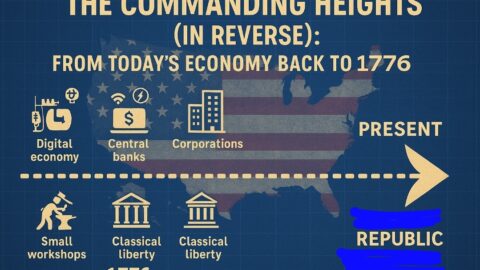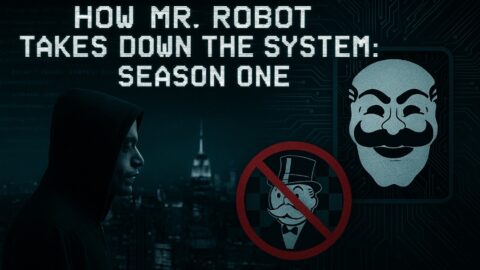The idea behind “Let the best ideas win by public debate but don’t use the law to enforce your idea on society” emphasizes the importance of open discourse and the marketplace of ideas. It suggests that ideas should succeed based on their own merits rather than being imposed through legal and corecive means.
Key Points:
- Marketplace of Ideas:
- Ideas should compete freely in an open environment where the most compelling and effective ideas naturally gain acceptance.
- Encourages innovation and critical thinking as ideas are tested and refined through discussion and debate.
- Avoiding Coercion:
- Using the law to enforce ideas can stifle diversity of thought and discourage dissent.
- Legal enforcement of ideas can lead to authoritarianism, where power, rather than merit, determines which ideas prevail.
- Promoting Voluntary Adoption:
- When ideas are adopted voluntarily, it indicates genuine agreement and support.
- Voluntary adoption fosters a culture of respect and mutual understanding.
- American Republic Principles:
- Upholds the principles of freedom of speech and expression.
- Encourages a democratic approach where individuals have the right to choose which ideas to support and follow.
Practical Applications:
- Policy Making: Policymakers should strive to create an environment where ideas can be debated openly without resorting to legal mandates to impose specific viewpoints.
- Business and Innovation: Companies should encourage innovation and allow the best ideas to emerge through collaboration and competition rather than relying on top-down enforcement.
- Education: Academic environments should foster open discussions and critical analysis, allowing students to explore and evaluate different ideas freely.
Benefits:
- Encourages Creativity: An open environment where ideas compete on their merits promotes creativity and innovation.
- Fosters Resilience: Ideas that succeed on their own merits are more likely to be robust and sustainable.
- Builds Trust: Voluntary adoption of ideas builds trust and cooperation among individuals and groups.
In essence, the phrase champions the power of persuasion and the strength of good ideas, advocating for a free and open exchange rather than coercion through legal means.
Forcing a bad idea (lies) on a society can lead to numerous negative consequences, affecting various aspects of social, economic, and political life.
Here are some key potential consequences:
Social Consequences:
- Erosion of Trust:
- Public trust in institutions and leaders can diminish when people feel their views and needs are ignored.
- Social cohesion may weaken as different groups become polarized.
- Suppression of Freedom:
- Enforcing bad ideas often involves suppressing dissent, leading to a reduction in freedom of speech and expression.
- Citizens may feel less free to share their opinions or challenge the status quo.
- Loss of Morale and Motivation:
- People may become disheartened and demotivated if they are forced to adhere to ineffective or harmful policies.
- A general sense of apathy and disillusionment can spread throughout society.
Economic Consequences:
- Inefficiency and Waste:
- Bad ideas can lead to inefficient allocation of resources, resulting in waste and economic stagnation.
- Policies based on flawed ideas can cause financial losses for businesses and individuals.
- Reduced Innovation:
- Suppressing alternative viewpoints stifles creativity and innovation.
- Entrepreneurs and innovators may be discouraged from pursuing new ideas if they feel constrained by bad policies.
- Economic Hardship:
- Poorly conceived economic policies can lead to unemployment, inflation, and other economic hardships.
- The overall economic health of the society may decline, affecting the standard of living.
Political Consequences:
- Authoritarianism:
- Forcing bad ideas often requires authoritarian measures, eroding democratic principles.
- The concentration of power can lead to corruption and abuse of authority.
- Instability and Unrest:
- Public dissatisfaction can lead to protests, civil unrest, and even revolts.
- Political instability can arise as people push back against oppressive policies.
- Loss of Legitimacy:
- Governments and leaders may lose legitimacy if they persist in enforcing bad ideas.
- A loss of legitimacy can lead to difficulties in governance and the potential for regime change.
Cultural Consequences:
- Cultural Decline:
- A forced idea can suppress cultural expressions and reduce diversity.
- Societies may experience a decline in cultural richness and vibrancy.
- Stifled Intellectual Growth:
- Academic and intellectual freedoms can be curtailed, leading to a lack of critical thinking and intellectual stagnation.
- Scholars and thinkers may be deterred from exploring and presenting new ideas.
Personal Consequences:
- Psychological Impact:
- Individuals may experience stress, anxiety, and a sense of helplessness when forced to conform to harmful or ineffective ideas.
- Long-term exposure to oppressive policies can lead to mental health issues.
- Reduced Quality of Life:
- People’s overall quality of life can decline if they are forced to live under policies that do not serve their interests or well-being.
- Opportunities for personal and professional growth may be limited.
In forcing and legislating a bad idea (lies) on a society by tyrants and oligarchs, can lead to widespread negative effects, from economic downturns and social unrest to a decline in cultural and intellectual life. It underscores the importance of allowing ideas to be freely debated and adopted based on their merit rather than through coercion.
The effects of institutional bad ideas and lies on future generations can be profound and long-lasting, shaping societies in numerous ways. Here are some of the major impacts:
1. Erosion of Trust:
- Government and Institutions: When institutions propagate bad ideas or lies, they undermine public trust. Future generations may grow up distrusting governmental, educational, and social institutions, leading to widespread cynicism and disengagement from civic duties.
- Social Cohesion: Trust is a key component of social cohesion. When lies or misguided ideas become widespread, they can create divisions and a lack of cooperation within society.
2. Perpetuation of Injustice:
- Systemic Discrimination: Bad ideas can institutionalize discrimination, leading to systems that marginalize or oppress certain groups. Future generations may inherit these unjust systems, making it harder to achieve equity and social justice.
- Economic Inequality: Lies about economic policies or the benefits of certain economic models can entrench inequality, making it difficult for future generations to achieve upward mobility.
3. Distorted Historical Narrative:
- Education and Knowledge: If institutions promote false narratives or omit critical information, future generations may have a distorted understanding of history. This can lead to a skewed sense of identity, nationalism, or cultural superiority, potentially fueling future conflicts.
- Cultural Amnesia: Lies can result in the erasure of significant cultural and historical events, causing a loss of heritage and identity for future generations.
4. Stifling Innovation and Progress:
- Scientific and Technological Stagnation: If institutions suppress scientific truths or promote pseudoscience, it can stifle innovation and technological progress. Future generations may find themselves lagging in global competition or facing challenges that could have been addressed with better policies.
- Education: Bad ideas in education, such as anti-intellectualism or the suppression of critical thinking, can lead to poorly educated populations, hindering progress and the ability to solve complex problems.
5. Social and Psychological Impact:
- Collective Trauma: Lies about significant events (e.g., war, genocide) can lead to collective trauma. Future generations might inherit this trauma, manifesting in mental health issues, social instability, or intergenerational conflict.
- Identity Confusion: Growing up in a society where institutional lies are prevalent can lead to identity confusion or a crisis of values among young people. This can result in a generation that is disconnected, disillusioned, and uncertain of its place in the world.
6. Undermining Democracy & the American Republic:
- Authoritarianism: Lies and bad ideas can pave the way for authoritarian regimes, which may restrict freedoms and manipulate information. Future generations might grow up under oppressive systems with little room for dissent or democratic participation.
- Polarization: Bad ideas often lead to extreme polarization, making it difficult for future generations to find common ground or engage in constructive dialogue, potentially leading to political instability.
7. Moral and Ethical Decay:
- Normalization of Corruption: If lies and bad ideas become normalized within institutions, it can erode moral and ethical standards. Future generations might view corruption or dishonesty as acceptable, leading to a morally compromised society.
- Loss of Compassion: A society built on harmful ideas may foster selfishness, greed, and a lack of empathy, creating a future where collective well-being is sacrificed for individual gain.
9. Worldwide Impact:
- International Relations: Institutional lies can damage a country’s reputation on the worldwide stage, leading to strained relations, reduced influence, and potential conflicts that future generations must navigate.
- Worldwide Challenges: Misinformation on worldwide issues like pandemics or nuclear proliferation can have dire consequences, leaving future generations with heightened risks and fewer tools to address these challenges effectively.
The ripple effects of institutional bad ideas and lies can endure for generations, creating a legacy that shapes societal norms, policies, and individual lives in profound and often detrimental ways. Addressing these issues requires a commitment to truth, transparency, and ethical governance to safeguard the future.







